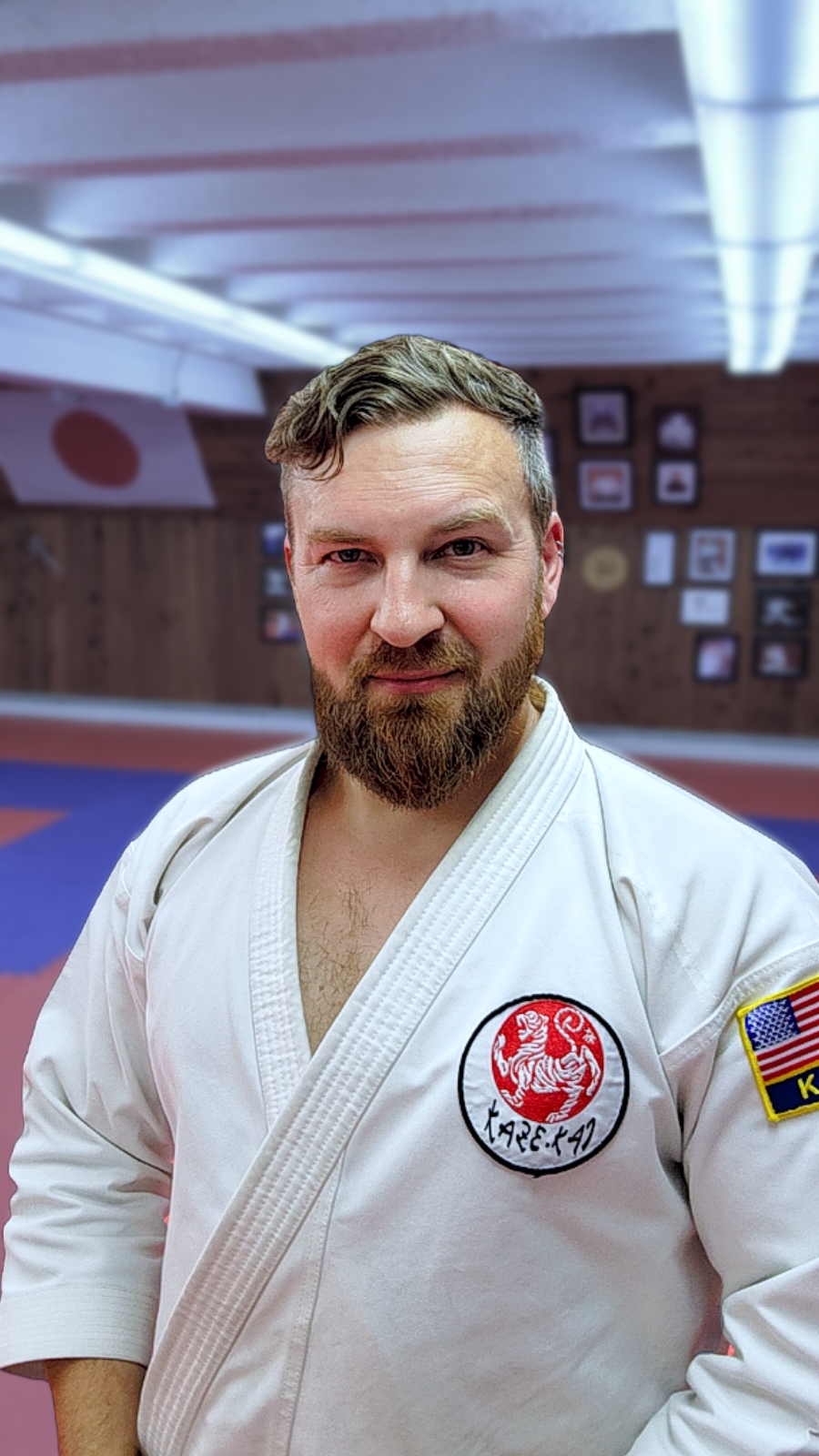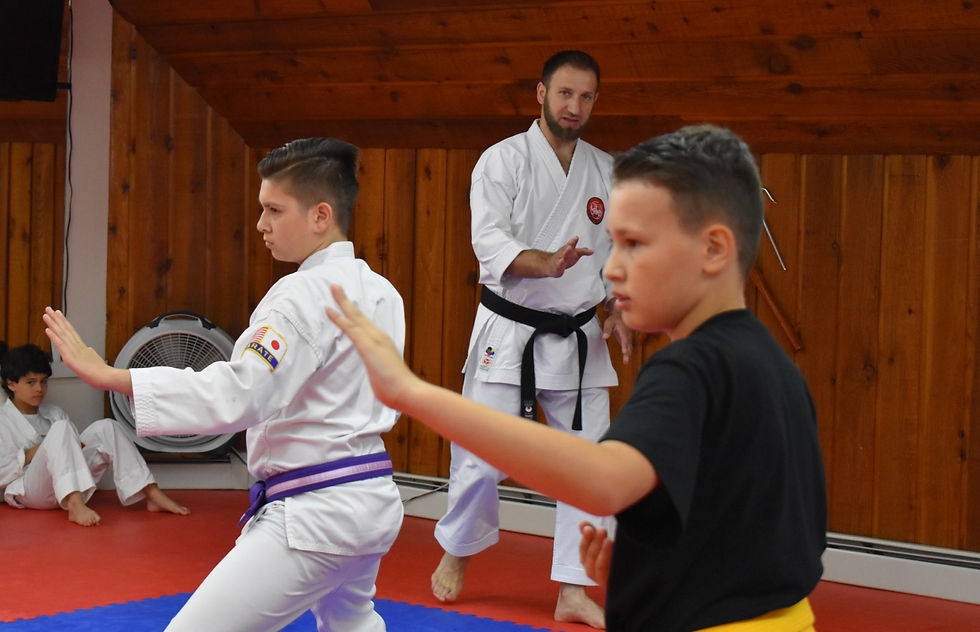Your Test is our Test
- Sensei Morrison

- Jun 19, 2022
- 7 min read
Updated: Nov 29, 2025
What is a test? According to the Oxford dictionary: A test is a procedure intended to establish the quality, performance, or reliability of something.
Standardized testing is when a given number of individuals receive the same questions and problems to determine whether the participant falls within the parameters of the test giver. As far as I'm concerned, I'm not a huge fan of standardized testing but I'll explain more on that later, however I do understand there significance. To better explain let's use fire fighters as an example.
Those who fight fires have the responsibility to save lives, so they need to be reliable.
They need to stop fire from spreading, so they also need to perform effectively.
Most importantly they must be cohesive, individuals working as a single unit.
The last point is the significant difference that we can examine in regards to testing. A phrase I like to say is that karate is knowledge, knowledge is power and those with power have a responsibility. That responsibility is to their training and that of lower ranks. In order for them to be true in the of passing knowledge they need to be honest with themselves about their own abilities. That can be seen in the quality of their performance and the acknowledgment of their mistakes.
Self-defense is a human right, so anyone should be allowed to train but not everyone is the same so performances will be different. This being said not everyone will be a teacher and you don't have to be, but I digress.
Though we train the same techniques and kata, often at the same time our individualism is still expressed.

Where firefighters are individuals training to be a unit, martial artists are a unit training as individuals. It shouldn't matter who saves us from a fire so long as they're able to get it done. That's why they along with doctors, cars and medicine go through standardized testing. That's not to say martial artists aren't reliable. It's that we train for our own reasons. Whatever they may be, health, fun, community, confidence whatever.
This doesn't mean karate schools shouldn't test. There needs to be a means to examine the growth of individuals. If a school is too lax on testing then growth can be sloppy or inconsistent when little care is given. If a school has a very strict standardized test for ranks, sure you'll have a very proficient school with highly skilled people but you might be leaving out a large demographic that wants to learn but can't hold a candle to your standards.
This is where Kaze-Kai comes in. Yes we have a test for every belt rank but we don't have to chain ourselves to it. You'll be tested on the kata you've learned and those prior. Maybe a few techniques and Japanese words spoken in class. If we find you're an intelligent or athletic individual who out performs others in your rank we're going to expect more from you. That doesn't always mean more kata or techniques but rather how well you perform. At the end of the day it's not about how many kata you know but the substance we put into them.
Like Bruce Lee said "I fear not the man who practiced 10,000 kicks once, but I fear the man who practiced one kick 10,000 times".
Now what if you aren't a star athlete?
Maybe you're autistic, have a learning disability or a physical handicapped. Maybe even an old injury or you're over 50 years old starting martial arts for the first time. You're not going to be tested the same. Adjustments will be made according to your development.
At this point if you're thinking to yourself, "Then why do we even bother with testing if it's such a fluid subject?" Then look no further.

Simply put, we must be fluid. We must be adaptable. Karate was never meant to be ridged and fixed. This process puts more pressure on the test giver. This is how the teacher gets tested, by how well the student performs. For everyone to get the same test would be as if the teacher drew a line in the sand only to ask their students to jump over it from their current position. No matter how far they are. Where at Kaze-Kai, the student shows us how far they can jump, then we make it our job to help them surpass their previous mark.
Another thing you'll notice at our school is there are no testing dates. We understand everyone has a life outside the dojo and things happen. You shouldn't have to schedule everything around karate. You do enough by taking the time to get to class. As Shihan Goral would tell you "karate shouldn't give you stress or be a determent to your life. That's not why we're here." If a school has two testing days a year as some do and you miss that day some students are going to feel bad, maybe even lose enthusiasm. A student will not be tested until we feel they are ready. However that's not a guarantee you'll pass but again, low stress environment right! Learn from your failure, keep coming in, keep practicing and test again, test as often as you need to. Karate is a life long pursuit after all, there are no deadlines except the ones we set for ourselves.
So that's why I try not to set such a solid standard for everyone. Simply because everyone's best is different. There is no best punch, there is my best punch and your best punch.
How we test students varies. The only test that remains mostly the same in how it's given will be the black belt test. There will have be a scheduled date outside the class times for a private test/lesson. I say lesson because we're going to teach you things as you test. The test aspect is for us to see you perform on demand based on what is asked of you to do because much of life will force you to the same. The pipes burst in your home, your kid falls and gets hurt, you're thrust into defending yourself ext. how well will you perform in the moment. I'll keep the lesson part to myself, can't give it all away. You'll just have to earn your black belt to figure that part out.
For the kyu ranks how you are tested is different from person to person as I've explained on a more personal level. Lets break it down between the beginner ranks (white-orange belt), intermediate (green-purple belt) and the advanced ranks (red-brown belt).
The Beginners

The beginners will focus on performance and how they improve. Depending on the student if they are a shy person typically for the young they will only need to perform in front of the teacher. In the rare case a student might not even know they're being tested during a class. We'll have them up in a group with a senior belt leading. That way they think they're under the cover of the group. This will remind them they're always being watched in the dojo and will not be forgotten.
The Intermediates

This is where you'll see us mostly flip the scripted. If they are shy but have made progress now we might test them in front of the class. It teaches the class to be supportive while giving the student more confidence. If they were already testing in front of the class as a beginner because of an outgoing personality, then it'll be more of a private test after class. A way to put more pressure on them and see how they handle it now that they don't have support from their classmates.
In this stage there are more Japanese words they'll need to know and understand in order to progress. I typically (as a way to mentally prepare them for the performance part) will ask them the meaning of words before kata. They'll also be asked to lead more during classes to get them ready to learn how to teach and take on responsibility.
The Advanced

At this stage tests will be more private. Friends and family can still watch unlike the black belt test but there are just too many things to go over it'll take too much time out of a class, unless a second teacher can take them aside. As the months go by we'll be watching you during class. These students need to be the black belt hype men if it were. They need to take more of a leadership role. Getting classmates of lower ranks to pay attention and be more discipline. They have to be the right and left hand of the teacher and often teaching on there own if they're going for brown or black belt. (This ties into a previous blog post "Beyond the black belt") Many a time we'll split the class up to train in kata or we'll rotate basic drills, the senior students will lead a small more easily manageable groups. Also when new students join it will be put on them to help them an often have a one on one with them in their first few classes.
And there you have it. A through look at how we at Kaze-kai have handled testing it's students for the past two decades and it's worked out pretty good so far. Many people have of all body types and mentalities have grown and improved themselves over the years. All because they've never given up and were willing to explore their potential.
I'll end this blog posing a question to consider. In pop culture, whether it be in books or in cinema the best characters are most famous for their development through a story. How they achieved peace, love, self-acceptance whatever it is from the challenges they face. For just a few examples:
Merry and Pippen: Lord of the Rings. Going from bumbling misfits to organizing a rebellion and fighting as soldiers.
Prince Zuko: Avatar the last Air bender. He started as a banished prince relentlessly seeking his fathers approval only to discover the only approval he needed was his own.
Keanu Reeves











Comments